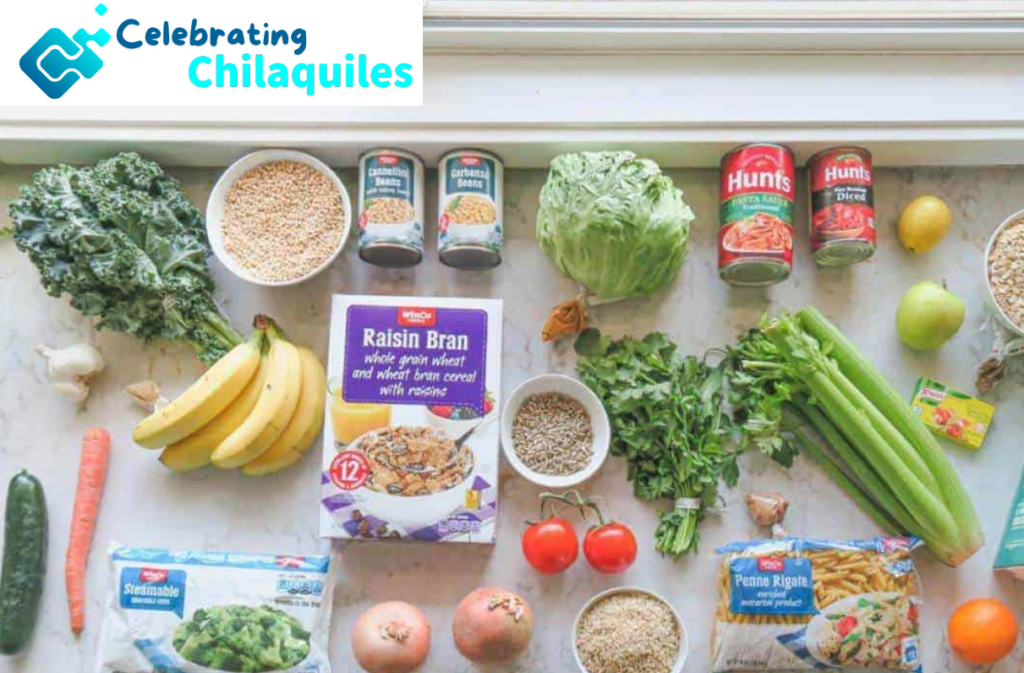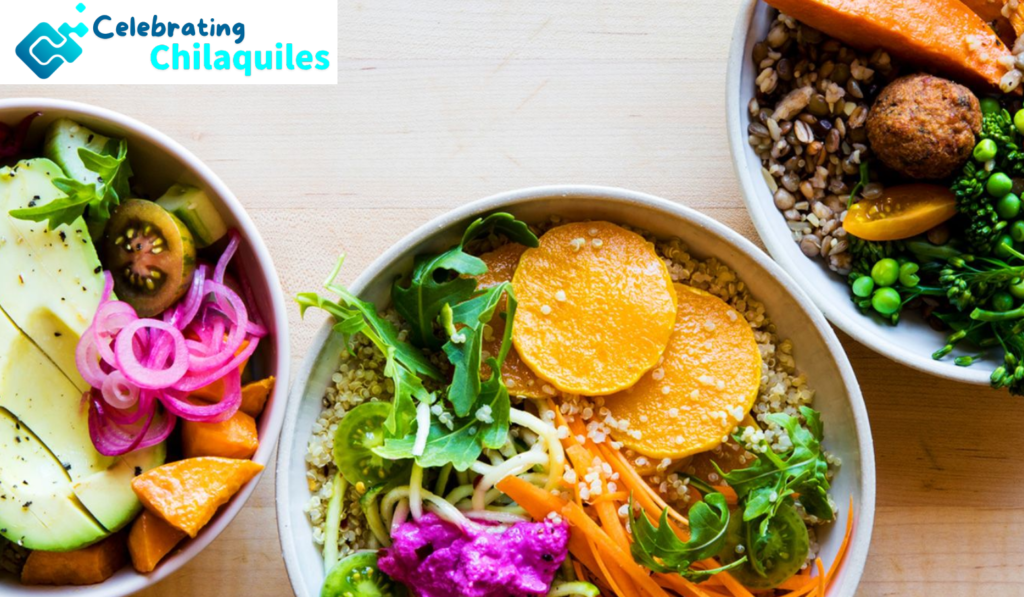A budget plant-based diet is not only possible but can be incredibly satisfying, nutritious, and affordable. By focusing on whole foods like vegetables, grains, legumes, and fruits, you can create delicious meals that meet your nutritional needs without overspending. In this guide, we’ll explore how to embrace a plant-based lifestyle on a budget with practical tips, meal planning strategies, and cost-saving hacks.
Whether you’re new to plant-based eating or a seasoned pro looking to trim your grocery bill, this guide will provide you with everything you need to thrive on a budget-friendly plant-based diet. Let’s dive in!
What is a Plant-Based Diet?
A plant-based diet emphasizes foods derived from plants, including vegetables, fruits, grains, nuts, seeds, and legumes. It minimizes or excludes animal products, making it a popular choice for those looking to improve their health, reduce environmental impact, or adhere to ethical considerations. Importantly, this diet is not about strict rules but about making plant foods the star of your meals.
Health Benefits of a Plant-Based Diet
A plant-based diet is associated with numerous health benefits, including lower risks of heart disease, type 2 diabetes, and certain cancers. It also supports weight management and improves overall digestion due to its high fiber content. By choosing nutrient-dense, plant-based foods, you can achieve a balanced diet rich in vitamins, minerals, and antioxidants.
Environmental and Ethical Considerations
Choosing a plant-based diet also has positive environmental impacts. Plant foods generally require fewer resources, such as water and land, and produce less greenhouse gas emissions compared to animal products. Additionally, this diet aligns with ethical considerations regarding animal welfare, making it an appealing choice for many.
How to Start a Budget Plant-Based Diet
Transitioning to a plant-based diet doesn’t have to be expensive. Here are some steps to get started on a budget:
Plan Your Meals
Meal planning is crucial for sticking to a budget. Start by planning meals for the week and making a grocery list based on your planned recipes. Focus on simple, versatile recipes that use affordable ingredients like beans, lentils, rice, and seasonal vegetables. By planning ahead, you can avoid impulse buys and reduce food waste.
Shop Smart and Buy in Bulk
Buying in bulk is one of the most effective ways to save money on a plant-based diet. Staples like rice, oats, lentils, and beans are often cheaper when purchased in bulk and have a long shelf life. Also, look for sales and discounts on fresh produce, and don’t hesitate to buy frozen fruits and vegetables, which are often cheaper and just as nutritious.
Choose Affordable Protein Sources
Protein is a key component of any diet, and plant-based proteins can be very affordable. Beans, lentils, chickpeas, tofu, and peanut butter are all budget-friendly sources of protein. Incorporate these into your meals to ensure you’re meeting your protein needs without overspending.

Essential Tips for Eating Plant-Based on a Budget
Stick to Whole Foods
Processed vegan foods can be expensive and are often less nutritious. Focus on whole foods like grains, beans, and fresh produce to get the most bang for your buck. These items are not only cheaper but also offer more nutritional value.
Cook at Home
Cooking at home is one of the best ways to save money. By preparing your meals, you control the ingredients and portion sizes, reducing the cost compared to eating out or buying pre-packaged meals. Plus, cooking in bulk allows you to have leftovers, saving time and money throughout the week.
Utilize Seasonal Produce
Seasonal produce is typically cheaper and fresher. Familiarize yourself with what’s in season in your area and plan your meals around those items. Farmers’ markets and local produce shops can offer great deals on seasonal fruits and vegetables.
Budget-Friendly Meal Ideas for a Plant-Based Diet
Breakfast
- Oatmeal with Fruits and Nuts: Oats are affordable and versatile. Top with seasonal fruits and a handful of nuts or seeds for added protein and healthy fats.
- Smoothie Bowls: Use frozen fruits, spinach, and plant-based milk to create nutritious smoothie bowls. Add toppings like chia seeds or granola for extra texture.
Lunch
- Lentil Soup: Lentils are a great source of protein and fiber. Make a big batch of lentil soup with vegetables and spices for a filling, low-cost meal.
- Chickpea Salad Sandwich: Mash chickpeas with avocado, lemon, and herbs for a simple and delicious sandwich filling.
Dinner
- Stir-Fried Vegetables with Rice: Use any veggies you have on hand, stir-fry with garlic, ginger, and soy sauce, and serve over rice for a quick, balanced dinner.
- Pasta with Tomato Sauce and Vegetables: Pasta is a cheap and satisfying option. Pair with a simple homemade tomato sauce and add in vegetables for extra nutrients.
Snacks and Quick Bites
Snacks don’t have to be expensive on a plant-based diet. Consider making your own trail mix with nuts, seeds, and dried fruits, or enjoy fresh fruits and vegetables with hummus.
Avoid Expensive Processed Snacks
While plant-based snack bars and chips are convenient, they can be costly. Stick to whole food snacks that you can prepare at home to keep costs down.
Budget Shopping List for a Plant-Based Diet
Here’s a basic shopping list to get you started on a budget plant-based diet:
- Grains: Rice, quinoa, oats, pasta
- Legumes: Lentils, beans, chickpeas
- Vegetables: Potatoes, carrots, onions, spinach, broccoli
- Fruits: Apples, bananas, seasonal fruits
- Nuts and Seeds: Peanut butter, sunflower seeds
- Other: Tofu, whole grain bread, spices, plant-based milk

Conclusion
A budget plant-based diet is achievable with the right strategies. By planning your meals, shopping smart, and focusing on whole foods, you can enjoy a nutritious and delicious plant-based diet without overspending. Embrace seasonal produce, buy in bulk, and cook at home to keep costs low while reaping the health benefits of plant-based eating. Whether you’re doing it for health, environmental, or ethical reasons, this guide provides the roadmap to make your budget plant-based journey successful and satisfying.
Embarking on a plant-based diet on a budget is not just a trend—it’s a sustainable lifestyle choice that benefits your health and the planet. Start small, stay consistent, and enjoy the journey!
Frequently Asked Questions
How do I start a plant-based diet on a budget?
Plan meals, buy in bulk, and focus on affordable staples like beans, lentils, rice, and seasonal vegetables.
Can you eat plant-based on a budget?
Yes, by focusing on whole foods like grains, legumes, fruits, and vegetables, and avoiding expensive processed products.
Is it cheaper to eat a plant-based diet?
Often, yes. Plant-based diets can be cheaper than diets with meat and dairy if you choose whole, unprocessed foods.
Can you be vegan on a budget?
Yes, with careful planning, buying in bulk, and avoiding costly processed vegan items.
Can I eat eggs on a plant-based diet?
No, a traditional plant-based diet excludes eggs, focusing on foods entirely derived from plants.
Which diet is the cheapest?
A plant-based diet with whole foods like grains, beans, and vegetables is typically one of the cheapest diets.

